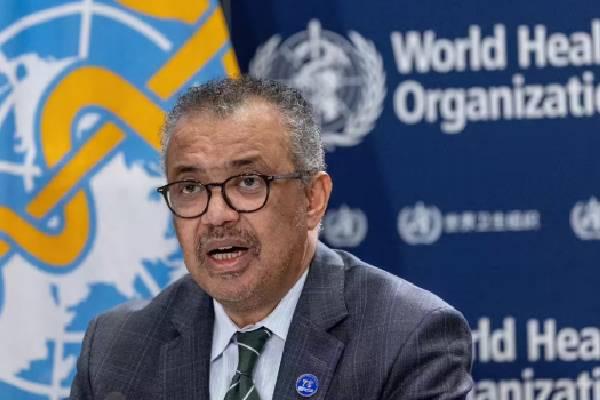The World Health Organization (WHO) has raised the alarm that almost 1 billion people worldwide are living with mental health conditions, urging governments to take urgent and decisive action.
Dr. Tedros Ghebreyesus, WHO Director-General, issued the warning ahead of the High-Level Meeting on Noncommunicable Diseases (NCDs) and Mental Health scheduled for September 25, stressing that failing to address these health challenges could cost millions of lives and place heavy burdens on global economies.
“Non-communicable diseases include 7 of the world’s top 10 causes of death. In addition, almost 1 billion people face mental health conditions,” Dr. Tedros said.
He highlighted the broader consequences of inaction: “Countries that act decisively to beat NCDs will save millions of lives, protect families, cut health costs, and unlock economic growth. In addition, more than one billion people face mental health conditions, and suicide is the third leading cause of death among young people.”
The WHO chief noted that NCDs and mental health conditions inflict enormous social and economic costs beyond the personal tragedies they cause.
“Apart from cutting lives short and robbing families of their loved ones, these deaths also incur huge costs for health systems and economies,” he said.
Globally, suicide ranks as the fourth leading cause of death among 15–29-year-olds, with 73% of cases occurring in low- and middle-income countries.
Read Also
In Nigeria, as of January 2024, the suicide mortality rate was 3.5 per 100,000 people, translating to roughly 15,000 deaths annually.
Dr. Tedros explained that countries have been negotiating a political declaration over the past year, which will be finalised at the UN General Assembly meeting.
READ ALSO: WHO raises fresh concerns over worldwide access to water, sanitation, hygiene
The draft declaration includes ambitious global targets for 2030: reducing tobacco use by 150 million people, expanding access to mental health care for 150 million, and ensuring 150 million people achieve control of hypertension.
“Investing in NCD prevention is not a cost,” he emphasised.
“It’s one of the smartest economic decisions any government can make. But often, governments face fierce opposition from industries that profit from unhealthy products.”
He reiterated the urgency of decisive action: “The message is clear. Countries that act decisively will save millions of lives, protect families, cut health costs, and unlock economic growth.”
The High-Level Meeting at the UNGA is expected to culminate in a robust political declaration, setting the stage for stronger international cooperation on combating NCDs and expanding mental health support over the next decade.





